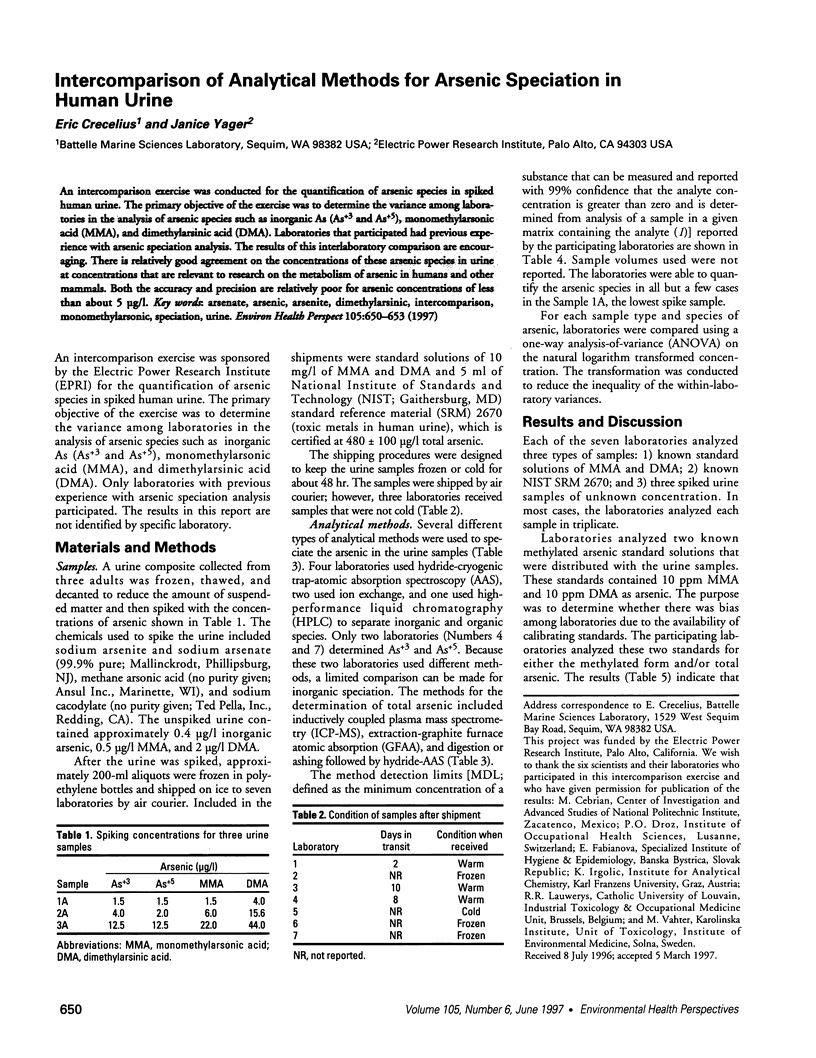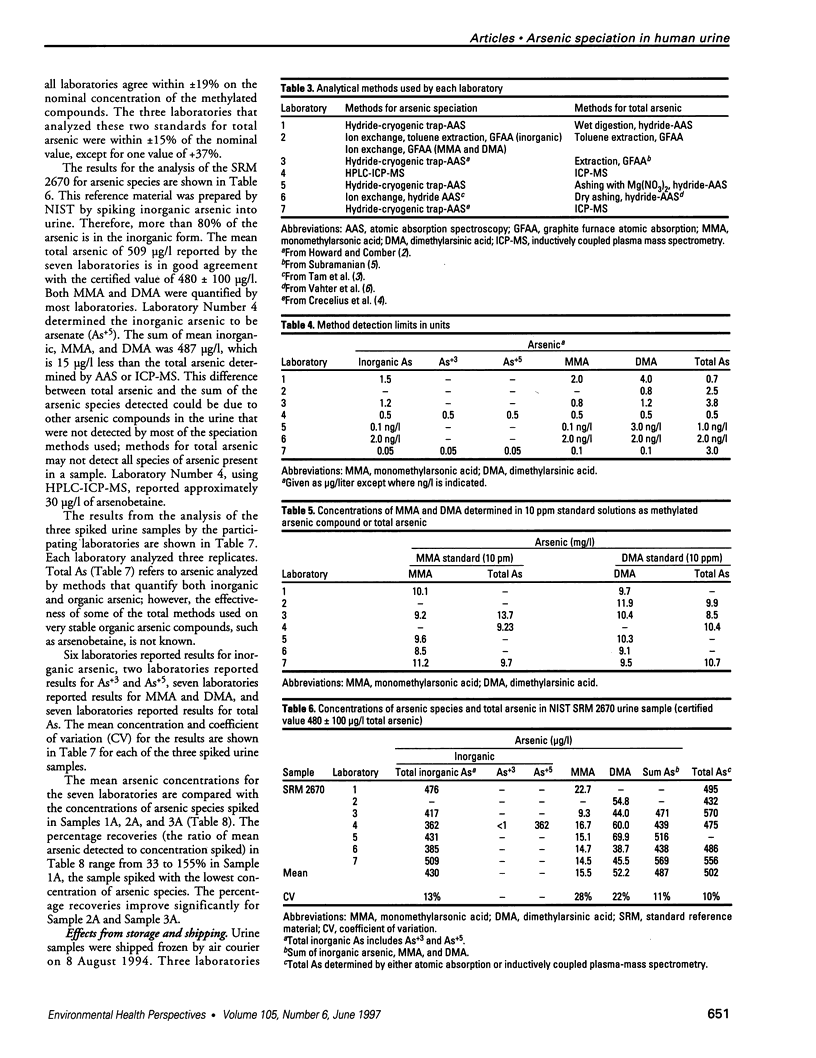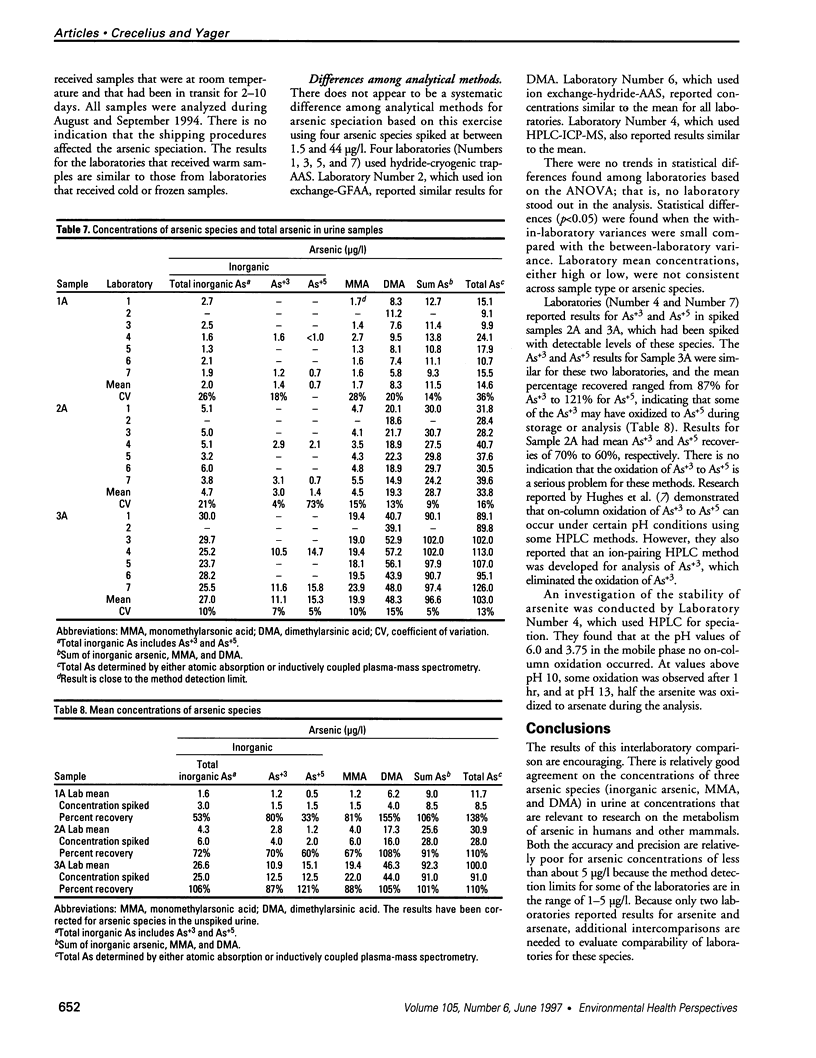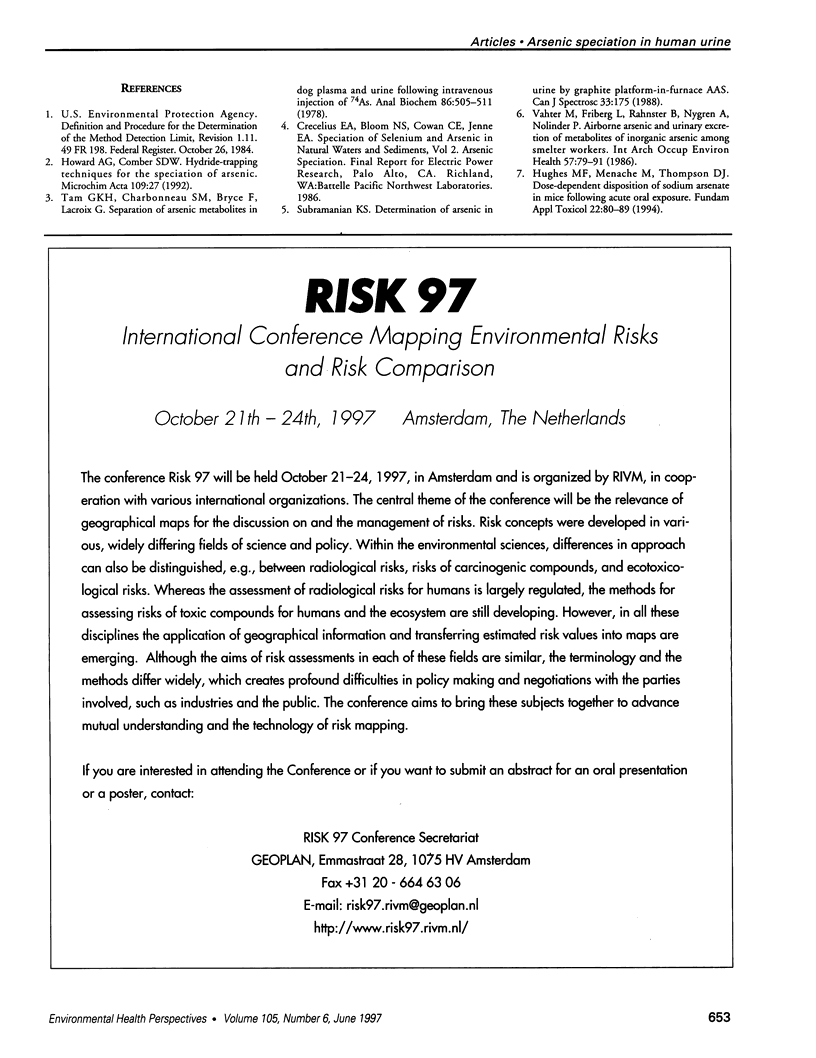Abstract
An intercomparison exercise was conducted for the quantification of arsenic species in spiked human urine. The primary objective of the exercise was to determine the variance among laboratories in the analysis of arsenic species such as inorganic As (As+3 and As+5), monomethylarsonic acid (MMA), and dimethylarsinic acid (DMA). Laboratories that participated had previous experience with arsenic speciation analysis. The results of this interlaboratory comparison are encouraging. There is relatively good agreement on the concentrations of these arsenic species in urine at concentrations that are relevant to research on the metabolism of arsenic in humans and other mammals. Both the accuracy and precision are relatively poor for arsenic concentrations of less than about 5 micrograms/l.
Full text
PDF



Selected References
These references are in PubMed. This may not be the complete list of references from this article.
- Hughes M. F., Menache M., Thompson D. J. Dose-dependent disposition of sodium arsenate in mice following acute oral exposure. Fundam Appl Toxicol. 1994 Jan;22(1):80–89. doi: 10.1006/faat.1994.1011. [DOI] [PubMed] [Google Scholar]
- Tam K. H., Charbonneau S. M., Bryce F., Lacroix G. Separation of arsenic metabolites in dog plasma and urine following intravenous injection of 74As. Anal Biochem. 1978 Jun 1;86(2):505–511. doi: 10.1016/0003-2697(78)90775-3. [DOI] [PubMed] [Google Scholar]
- Vahter M., Friberg L., Rahnster B., Nygren A., Nolinder P. Airborne arsenic and urinary excretion of metabolites of inorganic arsenic among smelter workers. Int Arch Occup Environ Health. 1986;57(2):79–91. doi: 10.1007/BF00381375. [DOI] [PubMed] [Google Scholar]


